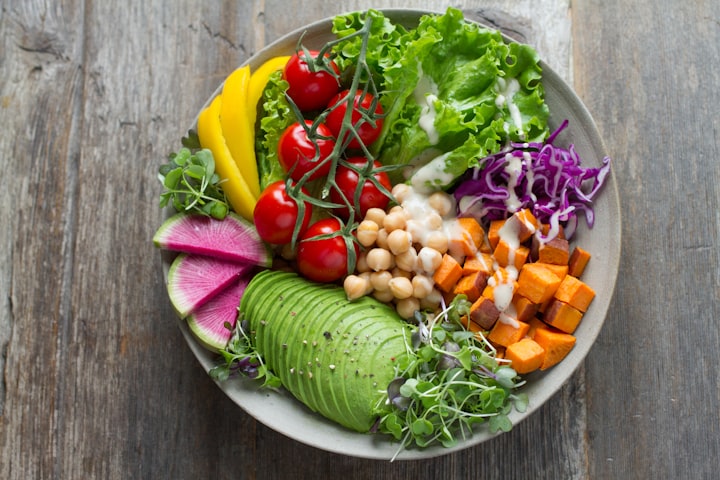Introduction to the Growing Trend of Veganism
As we step into 2025, the plant-based diet is no longer just a niche trend; it’s becoming a mainstream lifestyle choice. More people are embracing veganism for various reasons—health consciousness, environmental concerns, and ethical considerations are at the forefront of this shift. Whether you’re already on board or simply curious about why so many are making the switch, there’s no denying that vegan food trends in 2025 are more vibrant than ever. From innovative plant-based recipes to delicious alternatives that satisfy even the most discerning palates, diving into a plant-based lifestyle has never been easier or more appealing. Join us as we explore why so many individuals are turning to vegan diets and how this movement is reshaping our world for the better.
Health Benefits of a Plant-Based Diet
A plant-based diet is gaining momentum for good reason. It’s a powerhouse of nutrients that can enhance overall health. Rich in vitamins, minerals, and antioxidants, fruits and vegetables support immune function and reduce inflammation.
Studies show that this dietary approach can lower the risk of chronic diseases such as heart disease, diabetes, and certain cancers. By focusing on whole foods like legumes, grains, nuts, and seeds, individuals often experience improved digestion too.
Weight management becomes more attainable with a plant-based lifestyle. These foods are typically lower in calories but high in fiber—keeping you full longer without excessive calorie intake.
Mental health benefits are also emerging from a vegan diet. Nutrient-dense ingredients can positively influence mood and cognitive function while reducing anxiety levels. Transitioning to this vibrant way of eating opens up numerous avenues for better well-being.
Environmental Impact of Choosing Vegan
The environmental benefits of adopting a vegan lifestyle are profound. Livestock farming is one of the leading contributors to greenhouse gas emissions. By choosing plant-based options, individuals can significantly reduce their carbon footprint.
Additionally, animal agriculture requires vast amounts of water and land. It’s estimated that producing a single pound of beef uses over 1,800 gallons of water. In contrast, growing vegetables and grains consumes far less water and fosters sustainable land use.
Transitioning to a plant-based diet also promotes biodiversity. A reduction in meat consumption leads to lesser deforestation aimed at grazing livestock or growing feed crops.
This shift not only aids in conserving natural resources but also protects ecosystems from degradation caused by industrial farming practices. More people embracing veganism means fewer harmful impacts on our planet’s delicate balance.
Ethical Reasons for Going Vegan
Choosing a vegan lifestyle often stems from deep-rooted ethical beliefs. Many individuals resonate with the idea of animal rights and welfare. The desire to prevent suffering is a powerful motivator for many.
Factory farming practices are harsh and inhumane. Animals raised for food endure cramped conditions and often face cruel treatment. By adopting a plant-based diet, consumers can take a stand against these practices.
Environmental ethics also play a significant role in this choice. Animal agriculture significantly contributes to deforestation, water pollution, and climate change. Embracing veganism aligns personal values with actions that promote sustainability.
Additionally, there’s an increasing awareness about the interconnectedness of all living beings. This perspective nurtures compassion towards animals as well as fellow humans who suffer due to food scarcity linked to resource allocation in livestock farming.
These ethical considerations compel many toward embracing plant-based diets while fostering empathy across species boundaries.
How to Transition to a Vegan Lifestyle
Transitioning to a vegan lifestyle can feel daunting, but it doesn’t have to be. Start small by incorporating plant-based meals into your week. Try “Meatless Mondays” or explore new plant-based recipes that excite your taste buds.
Next, educate yourself about nutrition. Understand the essential nutrients you need and how to source them from plants. This knowledge will empower you as you make changes.
Join online communities or local groups focused on veganism for support and inspiration. Sharing experiences with others makes the journey easier.
Experiment with substitutes for your favorite foods, like almond milk in coffee or lentils instead of ground meat. There are countless options available now that cater to every craving.
Remember, it’s okay to take your time. Embrace each step at your own pace and celebrate small victories along the way!
Debunking Common Myths about Veganism
Many people have misconceptions about veganism that can deter them from exploring a plant-based diet. One common myth is that vegans cannot get enough protein. In reality, there are numerous plant sources packed with protein, such as lentils, chickpeas, quinoa, and tofu.
Another misconception is that all vegan food is bland or boring. The truth is, the world of vegan cuisine offers vibrant flavors and exciting dishes. From spicy curries to decadent desserts, creativity knows no bounds in the kitchen.
Some believe going vegan is too expensive. While specialty products may cost more, staple foods like grains and beans are often budget-friendly options.
Many think vegans must sacrifice convenience. With an increasing number of restaurants offering vegan options and meal delivery services tailored for this lifestyle in 2025, finding quick meals has never been easier.
Conclusion: The Future of Plant-Based Living
The future of plant-based living is bright and filled with potential. As more people become aware of the health benefits associated with a plant-based diet, interest in vegan food trends for 2025 continues to grow. From improved heart health to better digestion, individuals are discovering how transforming their diets can enhance overall well-being.
Moreover, environmental consciousness is playing an essential role. With climate change at the forefront of global discussions, many recognize that choosing vegan options can significantly reduce one’s carbon footprint. This shift not only helps our planet but also paves the way for sustainable eating habits that support future generations.
Ethical considerations cannot be overlooked either. A growing number of consumers are opting for cruelty-free lifestyles as they learn about animal welfare issues linked to traditional farming practices. This awareness propels them toward compassionate choices that reflect their values.
Transitioning to a vegan lifestyle doesn’t have to be daunting; it can be exciting and fulfilling instead! With countless delicious plant-based recipes available online, anyone can embark on this journey with ease and creativity.
Addressing common myths surrounding veganism has opened doors for even wider acceptance. The narrative around protein intake or flavorless meals has shifted dramatically as vibrant dishes take center stage in kitchens worldwide.
As we move further into 2025 and beyond, it seems likely that the trend toward plant-based diets will continue expanding—empowering people everywhere to embrace healthier lives while nurturing our planet and supporting ethical standards in food production. Embracing this lifestyle could lead us toward a more compassionate world where our choices align harmoniously with our values.














